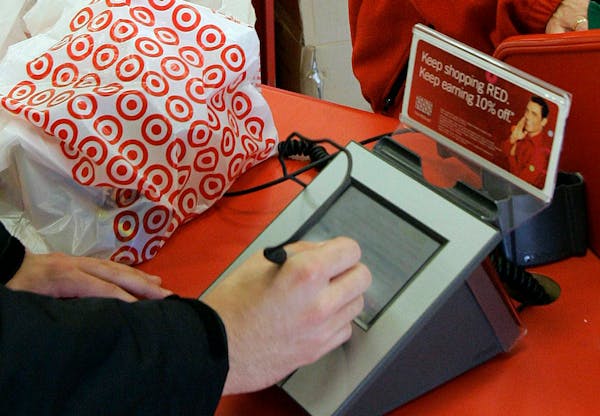SAN FRANCISCO – In the last year, Eastern European cybercriminals have stolen Brian Krebs' identity a half-dozen times, brought down his website, included his name and some unpleasant epithets in their malware code, sent fecal matter and heroin to his doorstep, and called a SWAT team to his home just as his mother was arriving for dinner.
"I can't imagine what my neighbors think of me," he said dryly.
Krebs, 41, tries to write pieces that cannot be found elsewhere. His widely read cybersecurity blog, Krebs on Security, covers a particularly dark corner of the Internet: profit-seeking cybercriminals, many based in Eastern Europe, who make billions off pharmaceutical sales, malware, spam, frauds and heists such as the recent ones that Krebs was first to uncover at Adobe, Target and Neiman Marcus.
He covers this niche with much the same tenacity of his subjects, earning him their respect and occasional ire.
Krebs — a former Washington Post reporter who taught himself to read Russian while jogging on his treadmill and who blogs with a 12-gauge shotgun by his side — is so entrenched in the digital underground that he is on a first-name basis with some of Russia's major cybercriminals. Many call him regularly, leak him documents about their rivals, and try to bribe and threaten him to keep their names and dealings off his blog.
His clean-cut looks and plain-speaking demeanor seem more appropriate for a real estate broker than a man who spends most of his waking hours studying the Internet's underbelly. But few have done more to shed light on the digital underground than he has.
His obsession with hackers kicked in when he was just another victim. In 2001, a computer worm locked him out of his home computer. "It felt like someone had broken into my home," Krebs recalled.
He started looking into it. And he kept looking, learning about spam, computer worms and the underground industry behind it. Eventually, his anger and curiosity turned into a full-time beat at the Post and then on his own blog.
"I realized that if security breaks down, the technology breaks down," Krebs said.
Today, he maintains extensive files on criminal syndicates and their tools. Some security experts readily acknowledge that he knows more about Russia's digital underground than they do.
"I would put him up against the best threat intelligence analyst," said Rodney Joffe, senior vice president at Neustar, an Internet infrastructure firm. "Many of us in the industry go to him to help us understand what the Eastern European criminals are doing, how they work with each other and who is doing what to whom."
That proved the case in December when Krebs uncovered the Target breach leading to what could be the biggest known Internet credit-card heist. That month, he had been poking around private, underground forums where criminals were bragging about a fresh haul of credit and debit cards.
Bought batch of stolen cards
Soon after, one of Krebs' banking sources called to report a high number of fraudulent purchases and asked whether Krebs could pinpoint where they were coming from. The source said that he had bought a large batch of stolen cards from an underground site and that they all appeared to have been used at Target.
Krebs checked with a source at a second bank that had also been dealing with a spike in fraud. Together, they visited one forum and bought a batch of stolen cards. Again, the cards appeared to have one thing in common: They had been used at Target from late November to mid-December.
On the morning of Dec. 18, Krebs called Target. The company's spokeswoman did not return his call until several hours later, but by then he had enough to run his article: Criminals had breached the registers in Target's stores and had made off with tens of millions of payment card numbers.
In the following weeks, Krebs discovered breaches at Neiman Marcus, the arts and crafts retailer Michaels, and White Lodging, which manages franchises for such major hotel chains as Hilton, Marriott and Starwood Hotels.
It is still unclear whether the attacks were related, but at least 10 other retailers may have been hit by the same hackers that hit Target and are reluctant to acknowledge it.
This is where Krebs comes in
Unlike physical crime, online thefts are hushed up by companies that worry the disclosure will inflict more damage than the theft, allowing hackers to raid multiple companies before consumers hear about it.
"There's a lot going on in this industry that impedes the flow of information," Krebs said. "And there's a lot of money to be made in having intelligence and information about what's going on in the underworld. It's big business but most people don't want to pay for it, which explains why they come to someone like me."
Krebs is "doing the security industry an enormous favor by disseminating real-time threat information," said Barmak Meftah, chief executive of AlienVault, a threat-detection service. "We are only as strong as our information. Unless we are very specific and effective about exchanging threat data when one of us gets breached, we will always be a step behind the attackers."
The tally of victims from the breaches at Target, Neiman Marcus and others now exceeds one-third of the U.S. population.
